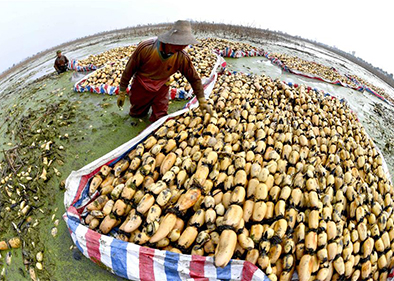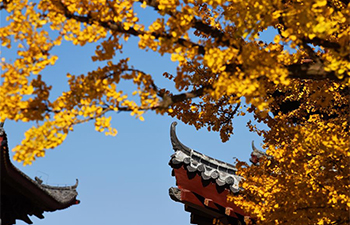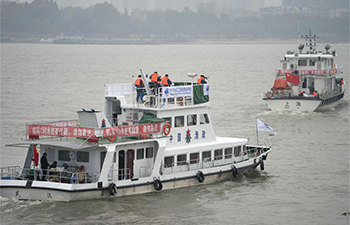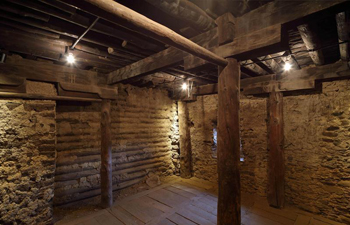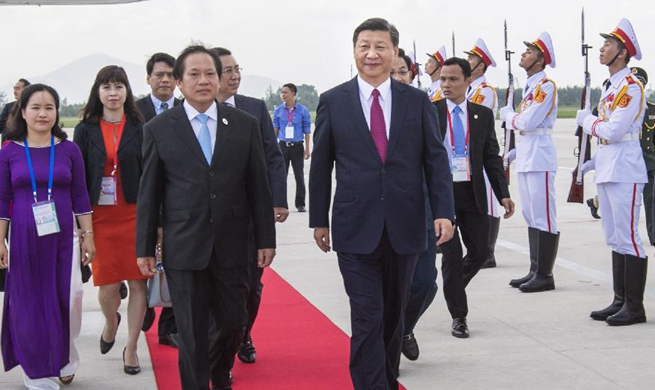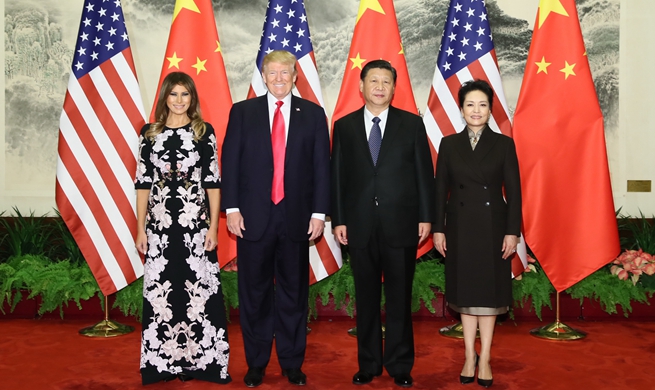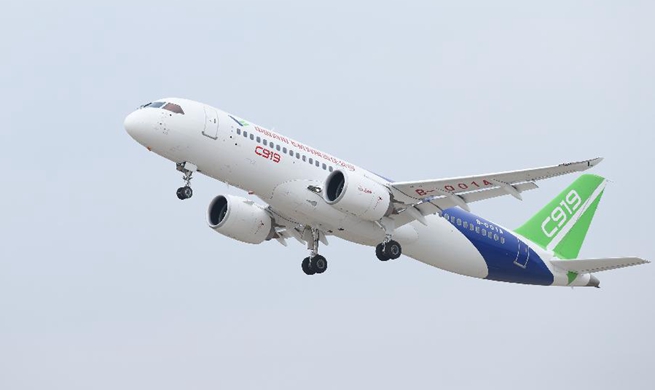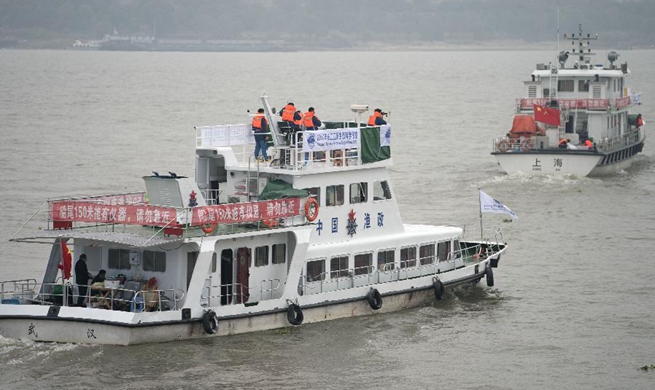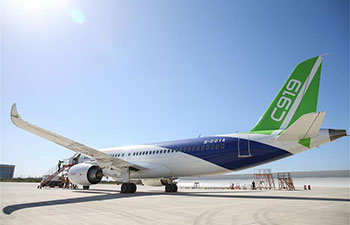By Zhang Dailei
LONDON, Nov. 10 (Xinhua) -- When Nara, 3, was enrolled in the Kensington Wade English-Chinese dual language primary school in southwest London two months ago, the cute little girl from an Italian family spoke no Chinese at all. Now as one of the quick learners of her class, she can greet and count in Chinese and her grasp of Mandarin has even amazed her Chinese teachers.
"Children learn languages best when they immersed," said the school founder and chairman Hugo de Burgh, who has required the teachers not to speak English in the Chinese classroom.
"Learning Chinese improves career opportunities and we aim to give future generations the ability to operate successfully in a Chinese business and cultural context. It opens doors to the world," reads the school brochure.
FIRST ONE IN WESTERN EUROPE
As the very first of its kind in western Europe, the Kensington Wade prep school offers an immersive English and Chinese education for children between the ages of 3 and 11. Children of any language background are welcomed to the newly established school which opened in September.
There are currently 15 students, studying half the day in the English classroom and the other half day in the Chinese classroom. There isn't a word of English in the Chinese classroom as the books here are in Mandarin and laid out are traditional oriental fans, scrolls and artwork.
Sharon Zhuo, one of the three Chinese teachers in Kensington Wade, has been teaching Mandarin in Britain for over ten years. Before coming to Wade, she worked in a London secondary school.
"Many UK high school students also learn Chinese at school, two or three hours each week. I should say that is not enough and also a bit late for language learning. Learning Mandarin should be started as early as possible," she told Xinhua.
That was agreed by Professor Hugo de Burgh, the founder, who set up the China Media Center in London at the University of Westminster about 12 years ago and started learning Chinese at the same time.
"As somebody who has learnt Chinese and got a great many rewards from it, I'm very keen that young Europeans should learn Chinese at an early age then they will be better than I am," the specialist in Chinese media told Xinhua.
He named the school after Thomas Wade, the 19th-century British sinologist who produced an early Chinese textbook in English in 1867.
"That was in 2007 when I first thought of having a school," said Hugo. He mentioned the meeting in 2007 when the eminent journalist and former Director of the Center for Policy Studies, Tessa Keswick proposed the establishment of a bilingual school. She strongly believed that future generation of British opinion formers and decision makers should learn Chinese at an early age.
Tackling the challenges, including finding property in west London, with investment from private sectors and supports from UK education ministers, it took nearly ten years to make the prep school possible.
POTENTIAL
The newly opened Chinese-English prep school attracted the headmistress Joanna Wallace, who worked as head of the junior school of Putney High, one of London's high-performing private schools. She took with her a team to the new school.
"I couldn't resist the challenge of running such a brand new school. It's a new conception not only in Britain but also in the whole Europe. You don't get that opportunity much in your career," Wallace told Xinhua.
Charging 17,000 pounds per year, the school also attracts an "international group of parents", as she describes. Only three students are from Chinese families while the others are shepherded by parents from the U.S., Singapore, Russia, European mainland and Britain.
The parents keen to this school are business people who are either working with China or understand the importance of it, according to Wallace. "They want to equip their children with the Chinese language, as China is playing an increasingly important global role," she told Xinhua.
One mother, who has enrolled her three-year-old boy, explained her school choice as "intellectual, cultural, and future-proofing", as quoted by the Financial Times earlier.
Sharon Zhuo, the Chinese teacher, said parents in Britain used to want their children to learn French or Spanish to enjoy holidays and literature, but now she knows more and more parents want their children to learn Mandarin for a more competitive career outlook.
As the pupils grow older, the much praised Shanghai-method of teaching maths will be offered to Kensington Wade along with Chinese-influenced classes such as calligraphy and martial arts.
"We not only teach languages, but also want to marry the best of two leading education systems," said Hugo de Burgh.
CRAZE FOR MANDARIN
Provisions for the school's opening come amid renewed emphasis from the British government on the importance of teaching Chinese as a second language, in order to prepare future generations for the global market.
In 2015 the Britain's Department for Education launched a new 10-milllion-pound initiative to expand Mandarin teaching in state schools across the country. Hundreds of pupils are taking part in the program, which aims to make at least 5,000 young people fluent in Mandarin Chinese by the year 2020.
"Chinese is the emerging language because China is emerging as a political and economic power," said Antonella Sorace, a linguistics professor of the University of Edinburgh. "It's regarded as a good investment."
In London, there is already a Mandarin-English nursery, called Hatching Dragons, which accepts babies from as young as six months to five.
"Certainly there is a lot of interest now among middle-class parents and professional parents," Hugo de Bourgh told Xinhua. "Their children are learning Chinese because they do business with China and they see that China is doing business with everywhere in the world."
The founder said while there are over 200 Chinese-English "immersion" schools in the United States, Europe is far behind. He has prepared to face the challenges to get European people acclimatize to the idea. "I hope that once this school has been well established, we will establish schools in all the big cities of Europe."




